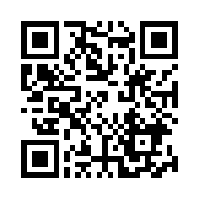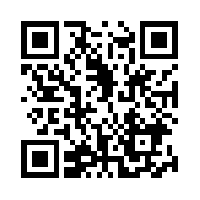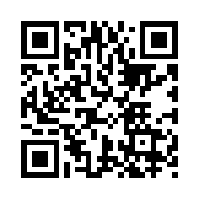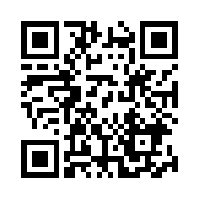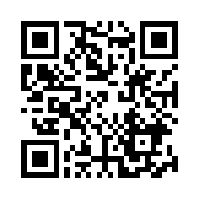159 Study Questions, Activities, and Resources
Study Questions and Activities
Araby
- What are some connotations of the word “Araby”?
- Give a few examples of how the narrator distances himself from the boy he once was?
- What is the main meaning of the word in the last sentence? In what sense was the protagonist “driven and derided by vanity”?
- In a brief essay, discuss how religious imagery relates to the theme.
- Discuss the motif of initiation or innocence to experience in the story.
Eveline
- Describe Eveline’s home life.
- How does she expect her new life to be different?
- Is Buenos Aires a symbol?
- List specific references to dust. What is the significance of the dust image?
- What is Eveline’s father like? Compare him to Mansfield’s late colonel or to O’Casey’s Capt. Boyle.
- What was her mother like? What happened to her? Does Eveline identify with her mother in any way?
- What do you think her mother meant by her repeating “the end of pleasure is pain”?
- What does her father mean when he tells her, “I know these sailor chaps”? What possible reasons would he have for trying to break up her romance with Frank?
- What type of person is Frank? What does she actually know about him?
- Has Eveline romanticized Frank in any way? Is her father’s objection of him perhaps justified?
- What is Eveline’s duty to her father? What promise did she make to her dying mother?
- What is her duty to herself? Does she really believe she has “a right to happiness”? Why or why not?
- How does Eveline feel about leaving her brother, Harry?
- In what ways is Eveline “like a helpless animal”? What is she afraid of?
- Why do you think her eyes give Frank “no sign of love or farewell or recognition”?
- Do you think Eveline made the right decision? Why or why not?
- Read the notes on the musical allusion in the story: http://www.james-joyce-music.com/songb_08_discussion.html
- In an essay of 1,000 to 1,500 words, give a feminist interpretation of the story.
- Read the notes on the musical allusion in the story (The Lass Who Loves a Soldier), as well as the lyrics to the song; then discuss how it contributes to a contrast between Frank and Eveline’s father. http://www.james-joyce-music.com/songb_08_discussion.html.
After the Race
- Comment on the thematic significance of paragraph 1, “…this channel of poverty and inaction” and of “cheer of the gratefully oppressed.”
- Describe Jimmy’s education. Why is his father secretly proud of his excesses?
- Why is Jimmy taken with Ségouin?
- In what is Jimmy about to invest? Does this seem to be a good investment? Why or why not?
- How does Ségouin diffuse the heated discussion of politics? What does this say about him?
- What meaning do you take from the following line, “he would lose, of course”?
- What is Routh’s nationality and why is it significant to theme?
Counterparts
- What is the narrative point of view in the story?
- In the office scene, what is the narrator’s attitude toward Farrington? How does he refer to him? List some descriptions used.
- Is there any difference between the descriptions and references to Farrington in the office scene and in the bar scenes?
- Describe the atmosphere of the office.
- Describe Mr. Alleyne.
- Describe Farrington. What is his response after the arm-wrestling loss? What is his attitude to the chief clerk? The pub keeper (curate)?
- The story breaks naturally into three main scenes. List them.
- Describe the atmosphere of Farrington’s home.
- Is Tom’s beating inevitable? That is, are you surprised when Farrington lashes out at him? If not, why not?
- What is the significance of the title? Look up “counterpart” in a good dictionary.
- Is it significant that Alleyne is from Northern Ireland, Weathers is from England, and the divided family is from Southern Ireland?
- The protagonist Farrington beats his young son Tom (see last paragraph of story). Write a 600-word essay on what causes the beating. Try to find at least two or three major causes. If you decide that one of the causes of the beating is excessive alcohol consumption, be sure to make the logical link to violence. Otherwise you might commit a post hoc, ergo propter hoc fallacy, which occurs when the writer substitutes a mere correlation for the cause. An example: “Let’s not invite Tom to our next picnic. Whenever he has attended our picnics, it has rained; whenever he was absent, it was sunny.”
- In an essay of 1,500 to 2,000 words, discuss “After the Race” and “Counterparts” as stories dealing with imperialism. Incidentally, the first chapter (“Telemachus”) of Joyce’s Ulysses also relates to the theme of colonialism: pay particular attention to Stephen’s words to the English visitor Haines: “I am the servant of two masters…an English and an Italian.” Identify these two masters and how they touch upon the colonialism topic. Also Joyce, in his portrait of the poor old milkwoman in the same chapter, alludes to Cathleen ni Houlihan, a traditional symbol of Ireland herself: she serves Mulligan and the Englishman Haines, “Her conqueror [Haines] and her gay betrayer[Mulligan]” Here is the link to the 1967 film, Ulysses, directed by Joseph Strick. https://www.youtube.com/watch?v=M8-e-_BhVtc
Resources
http://www.penguin.com/static/pdf/teachersguides/dubliners.pdf Contains useful study questions for each story, as well as useful historical and related bibliography.
Two Podcasts on Joyce’s “The Dead.” the final story in Dubliners. http://www.joycesdublin.ie/
“Joyce’s Dublin,” a web talk by Irene Togher http://www.irishcultureandcustoms.com/AWriters/JoyceDublin.html
An audio recording of “Araby” by Irish actor Colm Meaney https://www.youtube.com/watch?v=Yc0r_BC_faA
John McCormick “I’ll Sing Thee Songs of Araby.” Music by Frederick Clay;
words by W.G. Wills
https://www.youtube.com/watch?v=YkDSVmr_HNw
This piece may very well have been the inspiration for Joyce’s short story “Araby.” Indeed, the story does refer to an actual fair that took place in Dublin in May 1894. But Joyce did know and utilize the song of the same name in Finnegan’s Wake, and its lyrics completely fit the courtly love motif upon which the short story is based. At the end of the story, the adolescent protagonist finds himself in a darkened hall with all his dreams of Araby and Eastern enchantment dashed.
[from CD liner notes, contributed by Prof. Zack Bowen] http://www.james-joyce-music.com/song05_discussion.html
Lyrics to the song http://www.james-joyce-music.com/song05_lyrics.html
Eveline
A reading of Eveline by Irish actress Deirdre Molloy
https://www.youtube.com/watch?v=NYYCup3SnDg
Ulysses.
Full-text in separate chapters. http://ebooks.adelaide.edu.au/j/joyce/james/j8u/index.html
Joseph Strick film version of Ulysses (1967) https://www.youtube.com/watch?v=M8-e-_BhVtc
Prof. Michael Groden’s “Notes on Ulysses”: Chapter 1, “Telemachus”; Chapter 4 “Calypso”; and Chapter 18 “Penelope.”
“Chapter 1 “Telemachus” http://www.michaelgroden.com/notes/open01.html
“Chapter 4 “Calypso” http://www.michaelgroden.com/notes/open04.html
“Chapter 18 “Penelope” http://www.michaelgroden.com/notes/open18.html
Attributions
Figure 1:
James Joyce by Alex Ehrenzweig, 1915 by Alex Ehrenzweig (http://commons.wikimedia.org/wiki/File:James_Joyce_by_Alex_Ehrenzweig,_1915.jpg) is in the Public Domain

